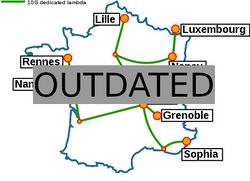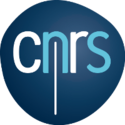Grid5000:Home
|
Grid'5000 is a large-scale and versatile testbed for experiment-driven research in all areas of computer science, with a focus on parallel and distributed computing including Cloud, HPC and Big Data. Key features:
|
Random pick of publications
Five random publications that benefited from Grid'5000 (at least 2932 overall):
- Adrien Schoen, Gregory Blanc, Pierre-François Gimenez, Yufei Han, Frédéric Majorczyk, et al.. A tale of two methods: unveiling the limitations of GAN and the rise of bayesian networks for synthetic network traffic generation. 2024 IEEE European Symposium on Security and Privacy Workshops (EuroS&PW), Jul 2024, Vienna, Austria. pp.273-286, 10.1109/EuroSPW61312.2024.00036. hal-04871298 view on HAL pdf
- Rosa Pagano, Sophie Cerf, Bogdan Robu, Quentin Guilloteau, Raphaël Bleuse, et al.. Making Control in High Performance Computing for Overload Avoidance Adaptive in Time and Job Size. CCTA 2024 - 8th IEEE Conference on Control Technology and Applications, Aug 2024, Newcastle Upon Tyne, United Kingdom. pp.1-8. hal-04669743 view on HAL pdf
- Wèdan Emmanuel Gnibga. Modeling and optimization of Edge infrastructures and their electrical systems. Databases cs.DB. Université de Rennes, 2024. English. NNT : 2024URENS069. tel-04967447 view on HAL pdf
- Fatmir Asllanaj, Sylvain Contassot-Vivier, Guilherme C Fraga, Francis H.R. França, Roberta J.C. da Fonseca. New gas radiation model of high accuracy based on the principle of weighted sum of gray gases. Journal of Quantitative Spectroscopy and Radiative Transfer, 2024, 315, pp.108887. 10.1016/j.jqsrt.2023.108887. hal-04375649 view on HAL pdf
- Celia Mahamdi, Jonathan Lejeune, Julien Sopena, Pierre Sens, Mesaac Makpangou. OMAHA: Opportunistic Message Aggregation for pHase-based Algorithms (extended version). Formal Aspects of Computing, 2024, 36, pp.1 - 23. 10.1145/3698593. hal-05003849 view on HAL pdf
Latest news
Failed to load RSS feed from https://www.grid5000.fr/mediawiki/index.php?title=News&action=feed&feed=atom: Error parsing XML for RSS
Grid'5000 sites
Current funding
As from June 2008, Inria is the main contributor to Grid'5000 funding.
INRIA |
CNRS |
UniversitiesUniversité Grenoble Alpes, Grenoble INP |
Regional councilsAquitaine |


